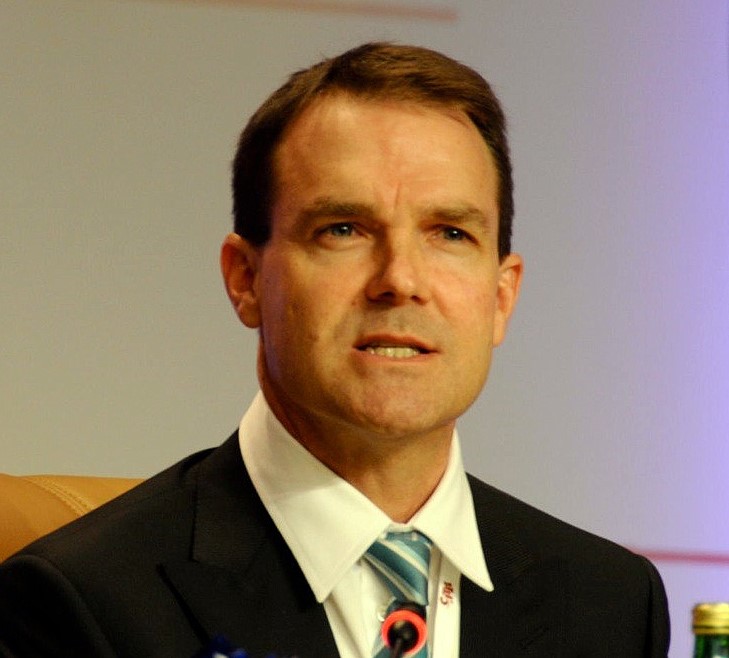At an event held alongside the 69th meeting of the CITES Standing Committee (SC69) on Wednesday, November 29, 2017, the International Consortium on Combating Wildlife Crime (ICCWC) announced generous new funding of $20 million to scale up the fight against illegal wildlife trade.

The significant new funding will be provided by the European Union (EU) (€13,500,000), Germany (€400,000) and the United Kingdom of Great Britain and Northern Ireland (UK) (£4,000,000), which in addition to the support provided by France and the Principality of Monaco (€85,000 and €200,000) earlier this year, provides a total investment of a further $20 million for the implementation of the ICCWC Strategic Programme 2016-2020.
Mr. John E. Scanlon, CITES Secretary-General, on behalf of ICCWC, highlighted that “these generous financial contributions mean we can scale up the level of support we give to countries to fight poaching and illicit wildlife trafficking, which is wiping out wild animals and plants, corrupting officials, creating insecurity and propelling local communities into a poverty spiral.
“It also recognises the central role of ICCWC in building the long-term capacity of the enforcement authorities dealing with wildlife crime, by giving them the tools, services and technical support they need to fight organised crime and corruption. Through this support countries will be better equipped to investigate, arrest and prosecute the offenders and members of organised crime groups that are behind these serious and highly destructive crimes.
“On behalf of ICCWC, the CITES community, and the large number of countries that will benefit from this much-needed support, we express our deep gratitude to our generous donors; the EU, Germany and the UK, as well as Monaco and France for their earlier contributions”.
Mr. Rodriguez Romero, on behalf of the EU, confirmed that the EU would provide new, additional support to the ICCWC strategic plan, with an allocation of €13.5 million under its Development and Cooperation Instrument. This comes in addition to the EU regional programmes in Asia, East, Southern and Central Africa with a total amount of €41 million implemented by ICCWC members: “The significant support from the EU to ICCWC demonstrates its commitment to address wildlife and forest crime, which forms part of its policy designed to achieve the sustainable development goals. Trafficking can only be successfully curbed if tackled in a holistic manner, with particular emphasis on the links between conservation, development and security. The EU pays particular attention to the active role that local communities and civil society organisations should play in improving and scaling up the fight against wildlife and forest crime. The EU will dedicate significant financial support to these actors under the wildlife and forest crime project, as a complement to its support to ICCWC”.
The UK committed to an initial contribution of £1.6 million and reaffirmed its commitment of up to £4 million in coming years. Combating the illegal wildlife trade, which is fuelled by corruption and undermines good governance and the rule of law, is a priority for the UK Government. On October 11 to 18, 2018 the UK will convene a fourth high level meeting of global leaders to ensure the illegal wildlife trade stays at the top of the political agenda.
Mr. Gerhard Adams, from the Federal Ministry for the Environment and head of the German delegation, also confirmed an initial contribution of €400,000 to the Consortium. He referred to the G20 High Level Principles on Combatting Corruption Related to Illegal Trade in Wildlife and Wildlife Products and the Resolution on corruption adopted at the 17th meeting of the Conference of the Parties to CITES. Instruments such as the ICCWC “Wildlife and Forest Crime Analytic Toolkit” are indispensable to implement important elements of those recommendations.
The ICCWC event at SC69 showcased how the generous contributions towards the ICCWC Strategic Programme will enable the Consortium to continue to provide support with the implementation of key tools developed by ICCWC to assist member states to strengthen their responses to wildlife crime, such as the ICCWC Wildlife and Forest Crime Analytic Toolkit and the ICCWC Indicator Framework for Combating Wildlife Crime. It will also enable the Consortium to provide essential support needed for the implementation of recommendations and priorities identified through the use of these tools.
Funds will further enable the convening of law enforcement operations, supporting investigations and operational analytical work, and initiating activities that will intensify cooperation in the investigation of transnational criminal networks. As the event held today highlighted, the work of the Consortium will also place an emphasis on combating the corruption associated with wildlife crime, and on better equipping authorities to mobilise anti-money laundering and asset forfeiture tools.
The implementation of the Strategic Programme will actively contribute to the implementation of some of the key Decisions and Resolutions related to combating wildlife crime adopted at the 17th meeting of the Conference of the Parties to CITES (CoP17, Johannesburg, September-October 2016).
The International Consortium on Combating Wildlife Crime (ICCWC) is a collaborative initiative of the Convention on International Trade in Endangered Species of Wild Fauna and Flora (CITES) Secretariat, INTERPOL, the United Nations Office on Drugs and Crime, the World Bank and the World Customs Organisation, established to provide coordinated support and strengthen criminal justice systems across the world to combat wildlife crime.
